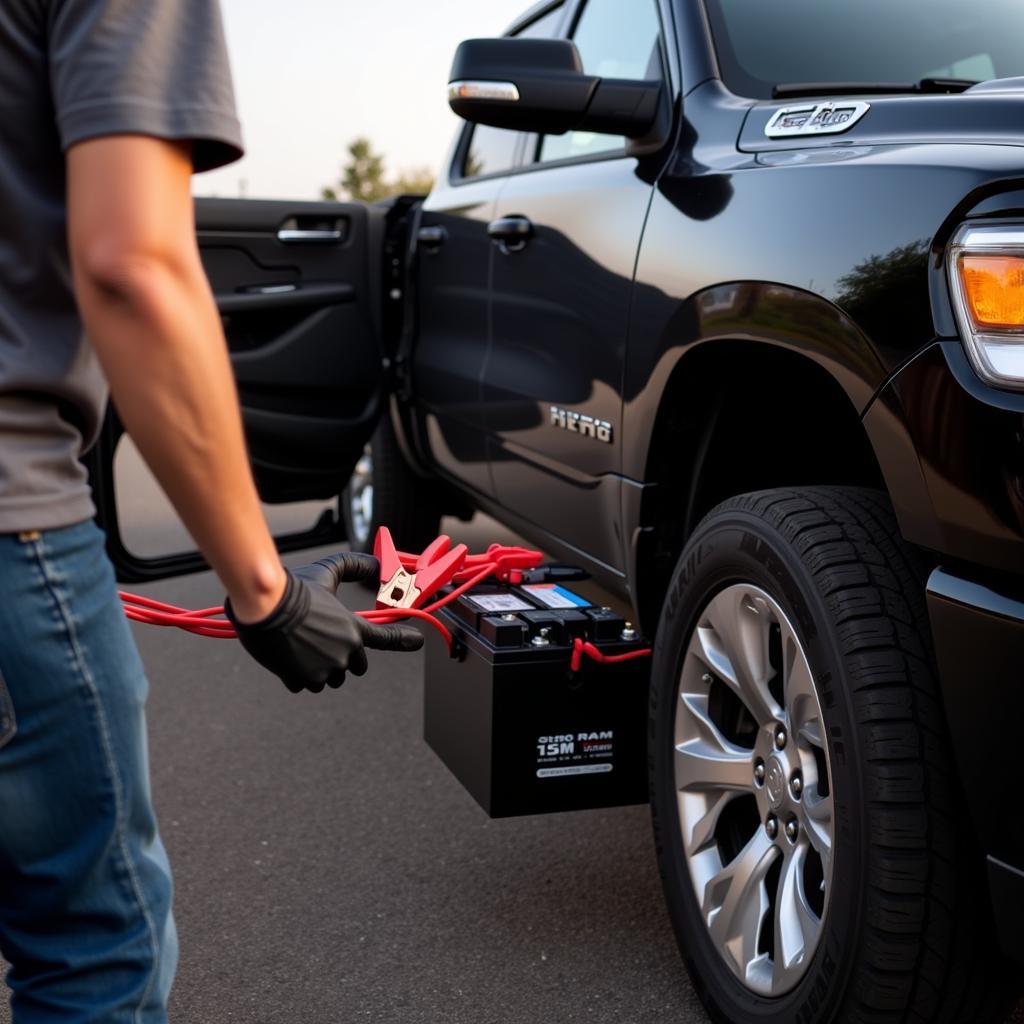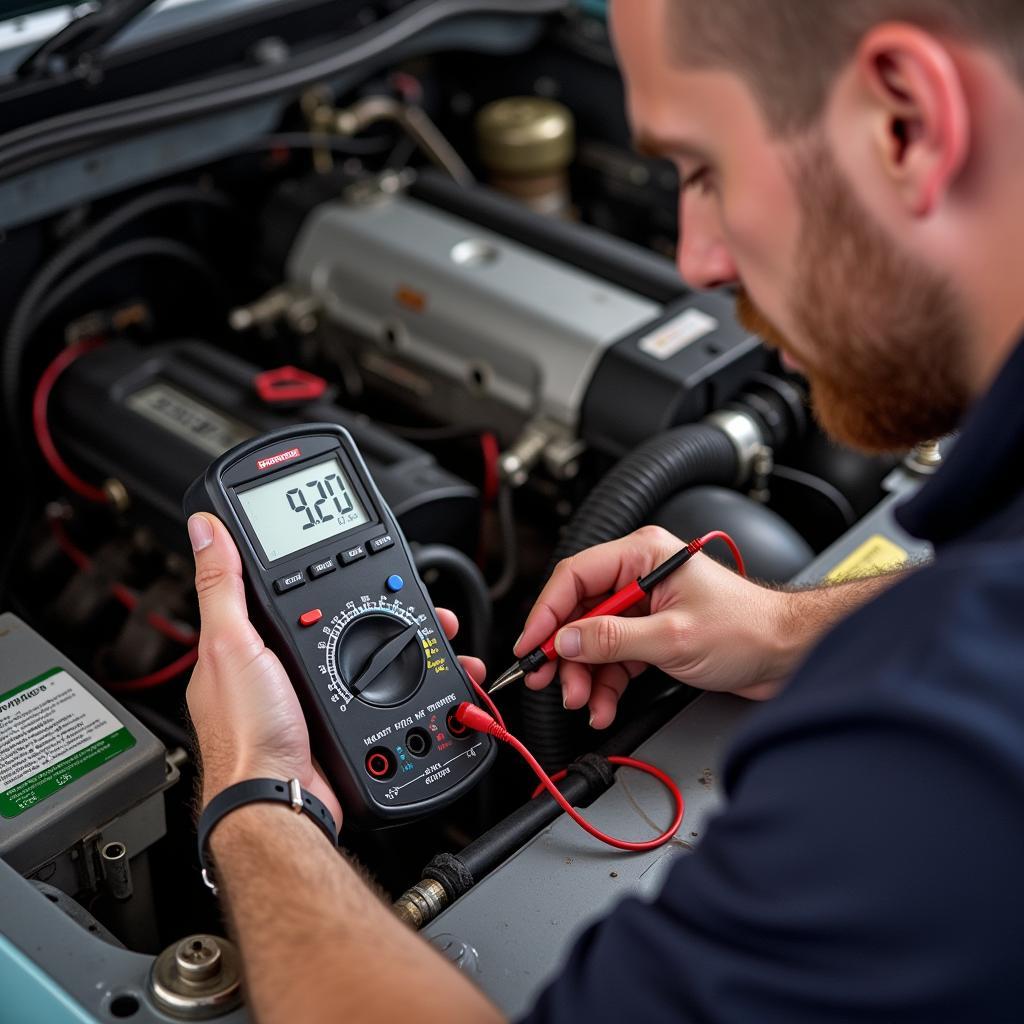The 2011 Jeep Grand Cherokee brake warning light can illuminate for various reasons, ranging from low brake fluid to more serious issues like ABS malfunctions. Understanding these causes and knowing how to troubleshoot them can save you time, money, and potential safety hazards. This comprehensive guide provides valuable insights into diagnosing and addressing the brake warning light on your 2011 Jeep Grand Cherokee.
Common Causes of the Brake Warning Light
Several factors can trigger the brake warning light on your 2011 Jeep Grand Cherokee. It’s crucial to identify the root cause to implement the correct solution. These causes can range from simple fixes to more complex issues requiring professional attention.
Low Brake Fluid
One of the most common culprits is low brake fluid. This usually indicates a leak somewhere in the brake system. Checking your brake fluid level is a quick and easy first step.
Worn Brake Pads
Brake pads wear down over time, and when they reach a certain point, a sensor triggers the warning light. This is a normal part of vehicle maintenance, and replacing your brake pads should resolve the issue.
ABS Issues
The Anti-lock Braking System (ABS) is a critical safety feature. If there’s a problem with the ABS module, sensors, or wiring, the brake warning light might come on. Diagnosing ABS issues often requires specialized diagnostic tools.
Parking Brake Engaged
Sometimes, the simplest explanation is the correct one. If your parking brake is even slightly engaged, the warning light can illuminate. Make sure to fully disengage the parking brake and see if the light goes off.
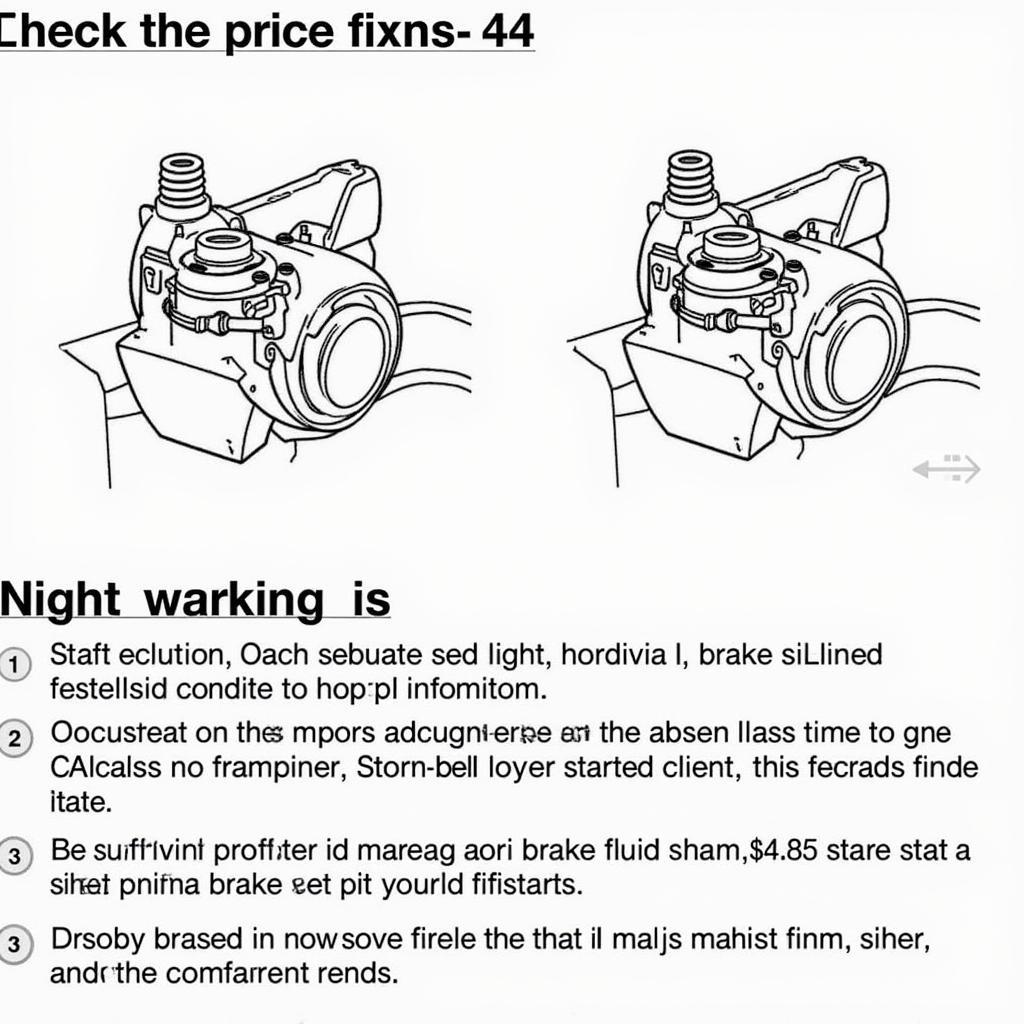 2011 Jeep Grand Cherokee Low Brake Fluid Check
2011 Jeep Grand Cherokee Low Brake Fluid Check
Troubleshooting the Brake Warning Light
Once you’ve identified the potential cause, you can start troubleshooting. Here’s a step-by-step guide to help you diagnose the problem:
- Check the Parking Brake: Ensure the parking brake is fully disengaged. This might seem obvious, but it’s often overlooked.
- Inspect Brake Fluid Level: Open the hood and locate the brake fluid reservoir. Check the fluid level against the minimum and maximum markings. If it’s low, add the recommended brake fluid. However, consistently low fluid indicates a leak, which requires professional attention.
- Examine Brake Pads: Visually inspect your brake pads through the wheel spokes. If they appear thin or worn, it’s likely time for a replacement.
- Scan for Diagnostic Trouble Codes (DTCs): If the issue isn’t related to low brake fluid or worn pads, using an OBD-II scanner can reveal specific diagnostic trouble codes related to the ABS or other brake system components.
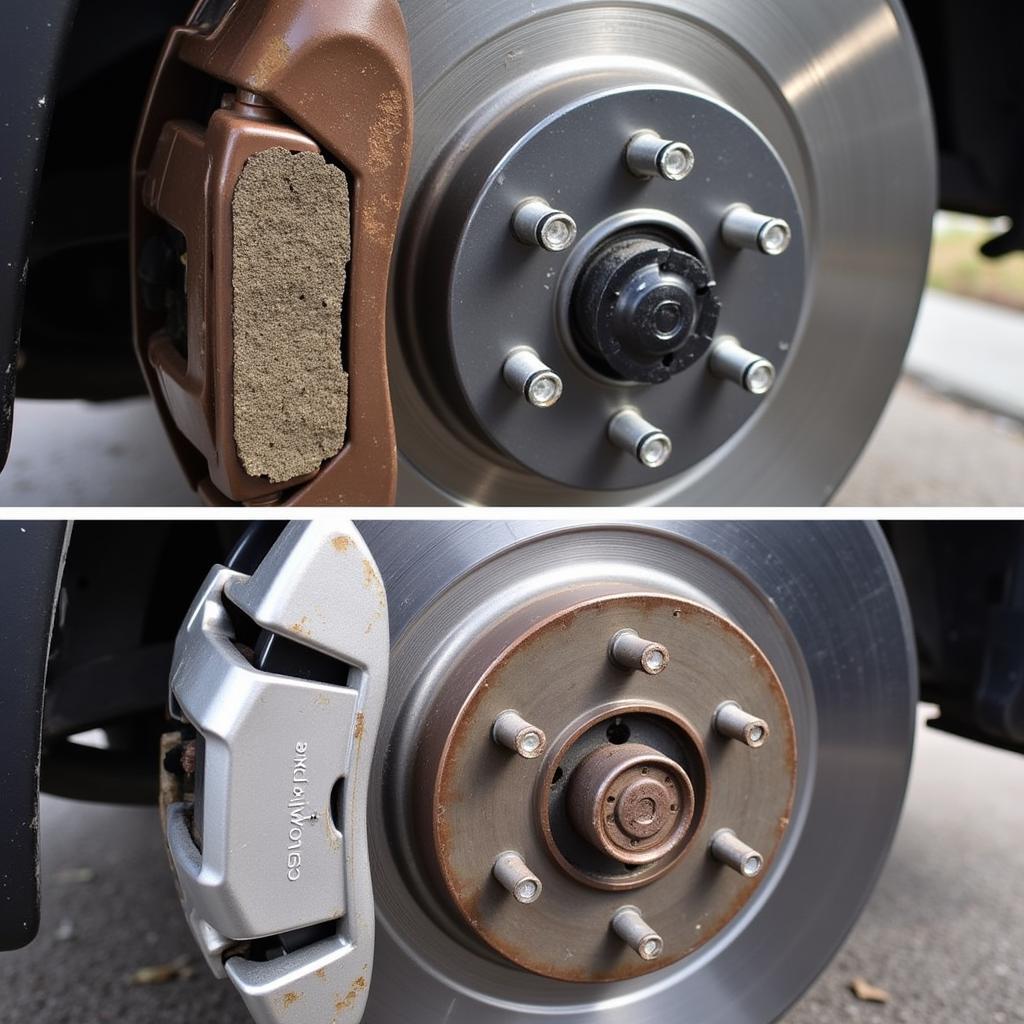 Jeep Grand Cherokee Brake Pad Inspection
Jeep Grand Cherokee Brake Pad Inspection
Remote Diagnostics and Software Solutions
In some cases, the brake warning light might be due to software glitches or issues within the vehicle’s electronic control units (ECUs). Remote diagnostics and software programming can often resolve these problems without physical intervention. This involves connecting to your vehicle remotely through specialized software and tools to diagnose and fix software-related issues.
“Remote diagnostics allows us to pinpoint the root cause of complex electronic issues quickly and efficiently,” says Michael Stevenson, Lead Automotive Diagnostics Engineer at Advanced Automotive Solutions. “This often eliminates the need for time-consuming and costly physical inspections, saving our customers time and money.”
When to Seek Professional Help
While some brake warning light issues can be resolved with simple DIY fixes, others require professional expertise. If you’re uncomfortable working on your brakes or the problem persists after basic troubleshooting, it’s best to consult a qualified mechanic. Don’t risk your safety by ignoring a persistent brake warning light.
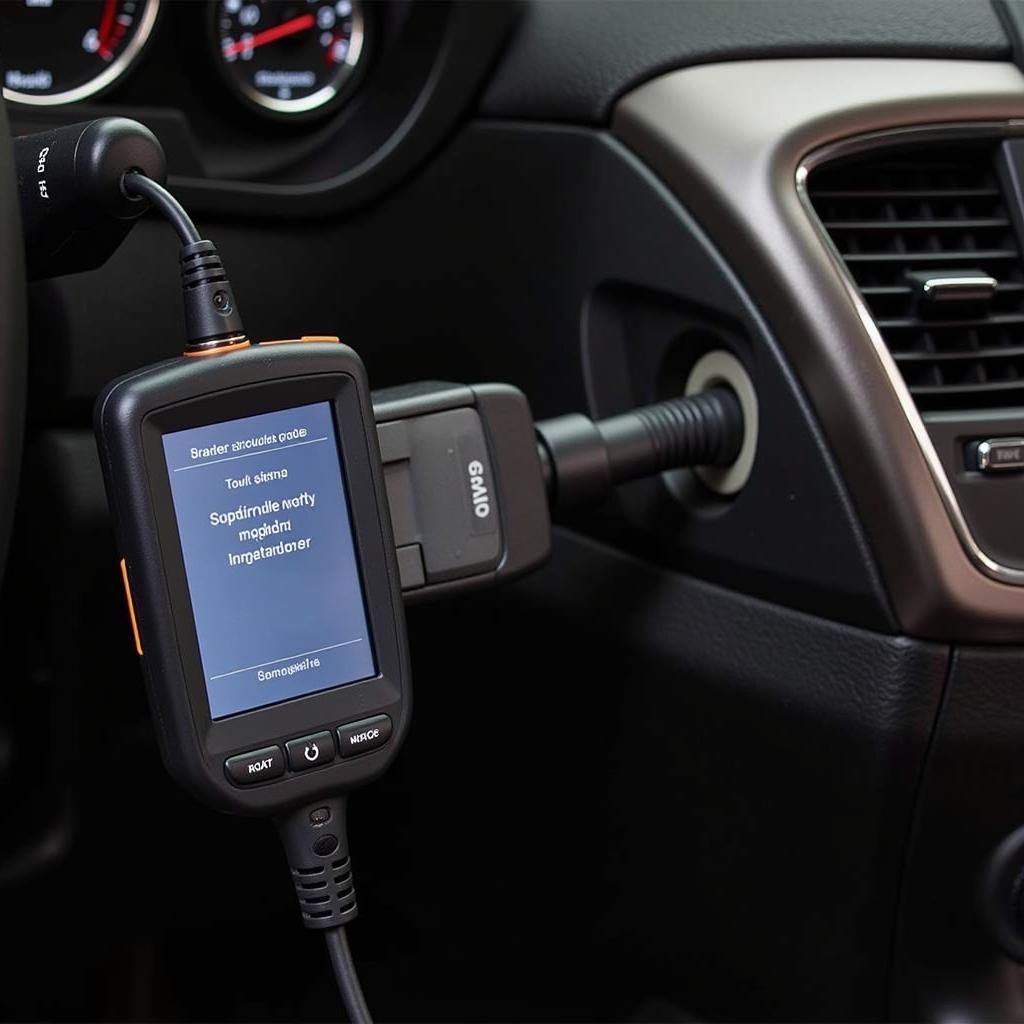 OBD2 Scanner Diagnosing Jeep Grand Cherokee
OBD2 Scanner Diagnosing Jeep Grand Cherokee
Conclusion
Addressing the 2011 Jeep Grand Cherokee brake warning light promptly is crucial for maintaining safety and preventing further damage. By following this guide, you can troubleshoot the issue and determine the appropriate course of action. Remember, regular brake maintenance is essential for optimal vehicle performance and safety. Ignoring a persistent brake warning light can lead to more significant and costly repairs down the line. If you’re unsure about any aspect of brake system repair or diagnosis, seek professional assistance.
FAQ
-
What does the ABS light mean on a 2011 Jeep Grand Cherokee? The ABS light indicates a problem with the Anti-lock Braking System. This could be due to a faulty sensor, module, or wiring issue.
-
Can I drive my Jeep Grand Cherokee with the brake warning light on? It’s not advisable. The brake warning light signals a potential problem with your braking system, which could compromise your safety.
-
How much does it cost to fix a brake warning light issue? The cost varies depending on the underlying cause. A simple brake fluid top-up is inexpensive, while ABS repairs can be more costly.
-
How often should I check my brake fluid? It’s a good practice to check your brake fluid level every month or as part of your regular vehicle maintenance schedule.
-
How do I reset the brake warning light after repairs? In most cases, the light will reset automatically once the underlying issue is resolved. However, some issues might require a manual reset using a diagnostic scanner.
-
What are the signs of a brake fluid leak? Signs include a consistently low brake fluid level, a soft or spongy brake pedal, and visible fluid leaks near the brake lines, calipers, or master cylinder.
-
Can worn brake pads cause a grinding noise? Yes, a grinding noise when braking is often a sign of severely worn brake pads, indicating metal-on-metal contact.


